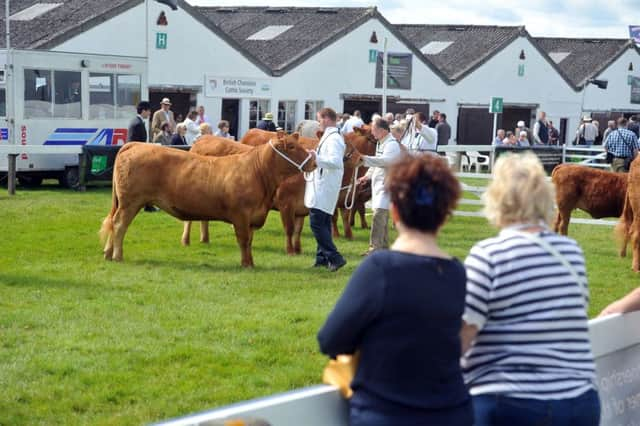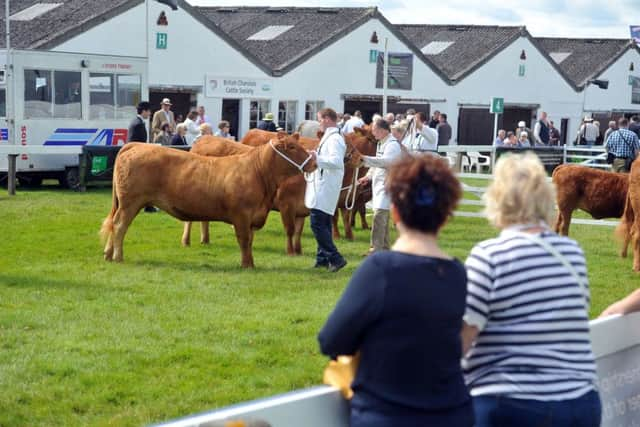Great Yorkshire Show: Farmers face '˜real challenge' to influence May, warns expert
This article contains affiliate links. We may earn a small commission on items purchased through this article, but that does not affect our editorial judgement.


Wyn Grant, professor of politics at Warwick University, told farmers at the Great Yorkshire Show that the Farmer Scientist Network report had not influenced the Brexit debate in the way he hoped and that he was concerned that there would be a similar challenge to prioritise farming now.
Speaking at a Future Farmers of Yorkshire debate about Brexit, Prof Grant said: “One of our objectives with our report was to try and get greater attention given to agriculture and the food chain in the referendum debate. We were not very successful and I’m concerned this will happen again in the Article 50 negotiations.
Advertisement
Hide AdAdvertisement
Hide Ad“The work of our working party will continue and it will have two main tasks: monitoring the negotiations in terms of their impact on agriculture and contributing to the debate on a new agricultural policy - that will now be an agricultural policy for England, as agriculture is a devolved matter.”


This debate will be carried out in the face of many political challenges for the farming industry, he said. England’s farmers can expect negative portrayals of their reliance on subsidies in some sections of the media, Prof Grant said, while there is a strong environmental, public health and animal welfare lobby that will challenge the industry on calls for changes to environmental policies and regulatory revisions. He cited the opposition to the government’s badger culls in the battle against bovine tuberculosis as an example of emotion trumping scientific evidence.
Prof Grant said he believes farmers will continue to receive subsidy payments but that it was a matter of great importance for the industry to clearly articulate the case for direct payments - as provided currently via the EU’s Basic Payment Scheme - as they were likely to be seen as an easy target by the Treasury.
“The future of subsidies is clearly a matter of concern for many enterprises because they make the difference of running at a profit and running at a loss,” he said.
Advertisement
Hide AdAdvertisement
Hide Ad“We are confident that there is a strong coalition of support for the continuation of strong agri-environment subsidies that hopefully will put right some of the failings of the existing scheme.


“We are much less confident about basic payment subsidies. We don’t think they will be abolished but we do think they will be a target for the Treasury.”
The professor added: “Inertia would suggest that a modified form of the Basic Payment will be used, hopefully with few form-filling complexities and of course, payments actually being made to farmers on time.
“We need to articulate the case for general subsidies. In my view the strongest argument is there is the need to maintain a level playing field with farmers elsewhere in Europe who will continue to receive such subsidies.
Advertisement
Hide AdAdvertisement
Hide Ad“There are also food security arguments given that our ability to grow temperate food stuffs has declined over time and one also has to think about environmental protection and the appearance of the countryside.”
Advertisement
Hide AdAdvertisement
Hide AdAdvertisement
Hide AdAdvertisement
Hide Ad